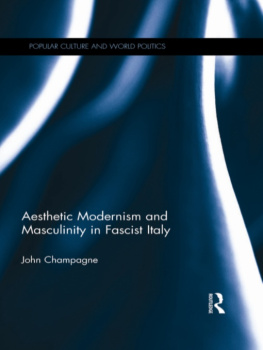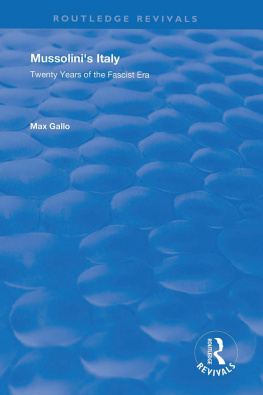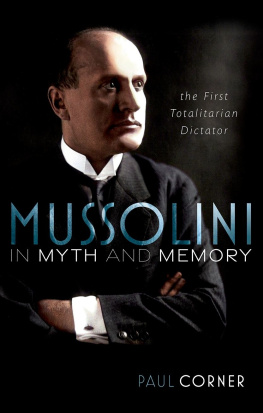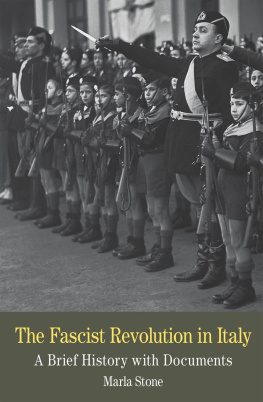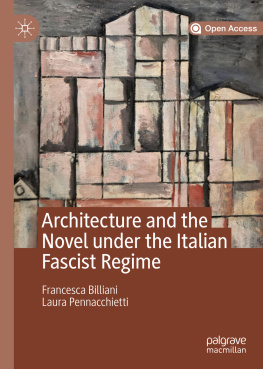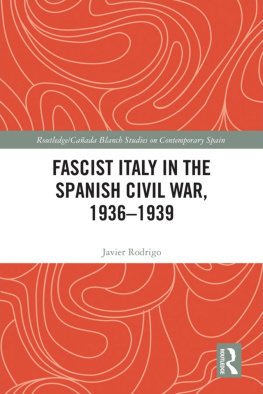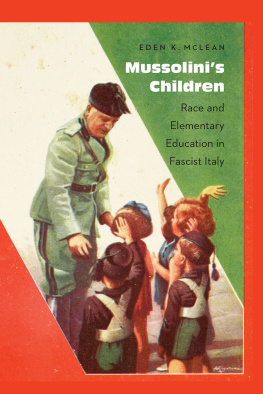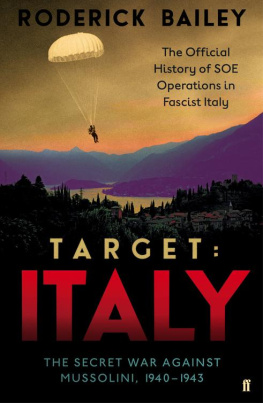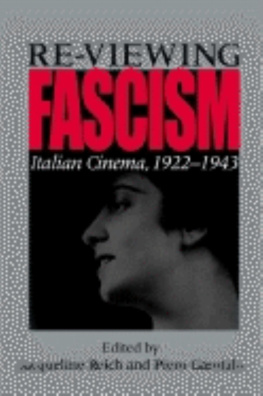Aesthetic Modernism and Masculinity in Fascist Italy
Aesthetic Modernism and Masculinity in Fascist Italy is an interdisciplinary historical rereading of a series of representative texts that complicate our current understanding of the portrayal of masculinity in the Italian fascist era. Examining paintings, music, and literature in light of some of the ideological and material contradictions that animated the regime, it argues that fascist masculinity was itself highly contradictory. It brings to the fore works that have tended to be under-studied, and argues that, while fascist inclusive strategies of patronage worked to bind artists to the regime, an official policy of non-interference may inadvertently have opened up a space whereby the arts expressed a more complicated and contestatory view of masculinity than the one proffered by kitsch photos of a bare-chested Mussolini skiing.
Champagne seeks to evaluate how the aesthetic analysis of the artifacts explored offers a more sophisticated and nuanced understanding of what world politics is, what is at stake when somethinglike masculinityis rendered as being an element of world politics, and how such an understanding differs from more orthodox cultural analyses common to international relations.
Providing a significant contribution to understandings of representations of masculinities in modernist art, this work will be of great interest to students and scholars of gender studies, queer studies, political science, Italian studies, and art history.
John Champagne is an Associate Professor of English at Penn State Erie, the Behrend College, and a Visiting Professor of Communications at John Cabot University, Rome. He writes on gender and sexuality in modern culture; a critic and novelist, he is the author of three previous books.
Popular Culture and World Politics
Edited by Matt Davies (Newcastle University),
Kyle Grayson (Newcastle University),
Simon Philpott (Newcastle University),
Christina Rowley (Brown University), and
Jutta Weldes (Bristol University)
The Popular Culture World Politics (PCWP) book series is the forum for leading interdisciplinary research that explores the profound and diverse interconnections between popular culture and world politics. It aims to bring further innovation, rigor, and recognition to this emerging sub-field of international relations.
To these ends, the PCWP series is interested in various themes, from the juxtaposition of cultural artifacts that are increasingly global in scope, and regional, local, and domestic forms of production, distribution, and consumption, to the confrontations between cultural life and global political, social, and economic forces, and the new or emergent forms of politics that result from the rescaling or internationalization of popular culture.
Similarly, the series provides a venue for work that explores the effects of new technologies and new media on established practices of representation and the making of political meaning. It encourages engagement with popular culture as a means for contesting powerful narratives of particular events and political settlements, as well as explorations of the ways that popular culture informs mainstream political discourse. The series promotes investigation into how popular culture contributes to changing perceptions of time, space, scale, identity, and participation while establishing the outer limits of what is popularly understood as political or cultural.
In addition to film, television, literature, and art, the series actively encourages research into diverse artifacts, including sound, music, food cultures, gaming, design, architecture, programming, leisure, sport, fandom, and celebrity. The series is fiercely pluralist in its approaches to the study of popular culture and world politics, and is interested in the past, present, and future cultural dimensions of hegemony, resistance, and power.
Gender, Violence and Popular Culture
Telling stories
Laura J. Shepherd
Aesthetic Modernism and Masculinity in Fascist Italy
John Champagne
Aesthetic Modernism and Masculinity in Fascist Italy
John Champagne
First published 2013
by Routledge
2 Park Square, Milton Park, Abingdon, Oxon OX14 4RN
Simultaneously published in the USA and Canada
by Routledge
711 Third Avenue, New York, NY 10017
Routledge is an imprint of the Taylor & Francis Group, an informa business
2013 John Champagne
The right of John Champagne to be identified as author of this work has been asserted by him in accordance with sections 77 and 78 of the Copyright, Designs and Patent Act 1988.
All rights reserved. No part of this book may be reprinted or reproduced or utilised in any form or by any electronic, mechanical, or other means, now known or hereafter invented, including photocopying and recording, or in any information storage or retrieval system, without permission in writing from the publishers.
Trademark notice: Product or corporate names may be trademarks or registered trademarks, and are used only for identification and explanation without intent to infringe.
British Library Cataloguing in Publication Data
A catalogue record for this book is available from the British Library
Library of Congress Cataloging in Publication Data
Aesthetic modernism and masculinity in fascist Italy / John Champagne.
pcm (Popular culture and world politics)
1. Fascism and artItalyHistory20th century. 2. Masculinity in art.
3. Modernism (Aesthetics)Italy. 4. Arts, Italian20th century. I. Title.
NX180.F3C44 2012 700.452110945dc23
2012006767
ISBN 978-0-415-52862-7 (hbk)
ISBN 978-0-203-10196-4 (ebk)
Typeset in Times New Roman
by Bookcraft Ltd, Stroud, Gloucestershire
Contents
Illustrations
| 3.1 |
| 3.2 |
| 3.3 |
| 3.4 |
| 3.5 |
| 3.6 |
| 3.7 |
| 3.8 |
| 3.9 |
| 3.10 |
Acknowledgments
I first began thinking seriously about the complexities of Italian Fascist-era representations of masculinity when my brother Salvatore introduced me to Mario Castelnuovo-Tedescos setting of Walt Whitmans Calamus cluster. Over the past few years, we have continued to discuss these songs, and a good deal of the musical analysis in the chapter on Castelnuovo-Tedesco really belongs to my brother, who was willing to sit through my amateurish observations and work with me to develop them into something more substantive. It is only due to his modesty that he is not listed as a co-author of the chapter; I thank him for a lifetime of sharing his musical talents with me.
Led by Shaul Bassi and Murray Baumgarten, a 2008 summer National Endowment for the Humanities Institute on the Jews of Venice encouraged me to consider Castelnuovo-Tedescos songs in the context of fascism. I cannot thank Shaul, Murray, and my fellow institute members enough for this inspiring and literally life-changing experience. During the course of our time in Venice together, my flatmate Dan Clasby graciously shared with me his knowledge of Italian history and listened as I worked out my ideas on

